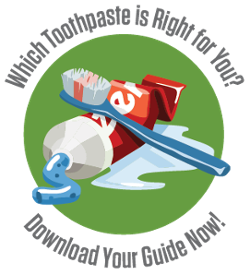By Brittany Flax on Jan 15, 2020 @ 11:00 AM
You’re gathered around the table, ready for another meal. Looking around the room, you see so many options. Meats, chesses, fruits, vegetables -- how can you ever decide? With all the different restaurants and food trends these days, it makes you wonder: is there a certain diet that’s better for you than another? Let’s take a bite into carnivore and plant-based diets and see how they can impact your oral health.

Carnivore Diet
Bring home the bacon! A Carnivore diet consists of meat, fish, dairy and other animal products. This eliminates fruits, vegetables, grains, legumes, seeds and all plant-based foods from your grocery list. It also discourages the consumption of tea, coffee and other drinks made from plants.
Full of protein, this diet has anti-inflammatory benefits as well as being rumored to help with weight loss. However, there are some health risks as well. Limiting yourself to only one food group can cause issues down the line. With a meat and dairy only diet you miss out on fiber and an abundance of nutrients like vitamin C which boosts gum health and vitamin E which helps prevent oral cancer.
As far as your oral health goes, eating a carnivore diet may not be the most beneficial. According to a recent study, people with a meat-only diet were more susceptible to periodontal disease and tooth loss. It also mentioned that some participants who already had these issues were prone to an increased risk of a number of diseases including heart disease and chronic kidney disease. Most of the participants who had a meat-based diet did so because adding fruits and vegetables were harder to consume with their oral health issues.
Now, before you write this diet off completely – it can be done effectively. By breaking a few rules, you can have a diet that consists of meat, but make sure to add some fruits and vegetables with every meal. This will make sure you start getting the nutrients and minerals you need that a meat-only diet can’t provide.

Plant-based Diet
This is a [mostly] meat-free zone! A Plant-based diet is more flexible than a carnivore diet. There are several forms that people follow, including:
- Lacto-ovo-vegetarian diet: Allows veggies, eggs and dairy products only.
- Lacto-vegetarian diet: Allows veggie and dairy products only.
- Ovo-vegetarian diet: Allows veggie and eggs only.
- Pescatarian diet: All fish diet with the exception of eggs and dairy products.
- Vegan diet: Eliminates meat, fish, poultry, eggs and dairy products, as well as other animal-derived products
- Flexitarian diet: A mostly vegetarian diet that incorporates occasional meat, fish or poultry.
Filled with a lot of health benefits, plant-based diets allow for a higher consumption of important nutrients like fiber, magnesium, and vitamins C and E. They can help enhance weight loss, stabilize blood sugar, reduce the risk of cancer, and promote heart health! The downsides to these diets are that they can limit your amount of protein, iron, and other vitamins and micronutrients that you get from animal products.
Overall, a plant-based diet, can greatly benefit your oral health. By eating a lot of fruits and vegetables, you can slow the production of periodontal disease and protect you against oral cancer. However, there are some forms of the diet that can put your oral health at risk.
Some research has suggested that a vegan diet may make patients more likely to experience oral health conditions like demineralization and white spot lesions. Studies have also suggested that participants who followed a vegan diet were more susceptible to dental erosion.
Since vegan eaters are consuming meat or dairy products, they may lack an amino acid called L-arginine in their diet which is naturally found in these products. This amino acid helps break down plaque and keep cavities and gum disease at bay.
Whether you decide to consume a carnivore or plant-based diet, remember that your diet isn’t the only thing to impact your oral health. Make sure to keep a healthy lifestyle by exercising and staying on top of your overall health. Make sure to also keep up a good brushing and flossing regiment! Just like deciding on the right dietary options, picking the right toothpaste is also really important for your oral health. Click below to download our guide and find the best one for you!
Want to have Solstice benefits? Call our sales team at 877.760.2247 or email Sales@SolsticeBenefits.com
Already have Solstice benefits? See your plan details by going to https://www.mysmile365.com/ or calling us at 1.877.760.2247.





comments